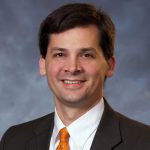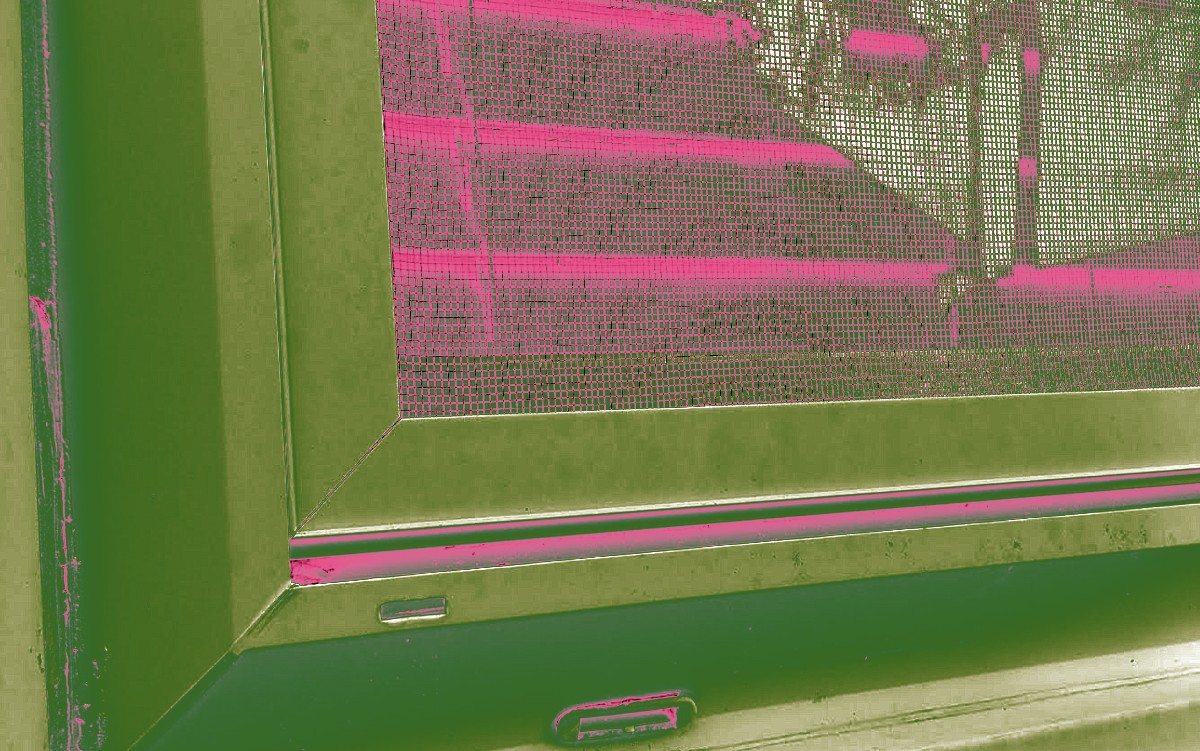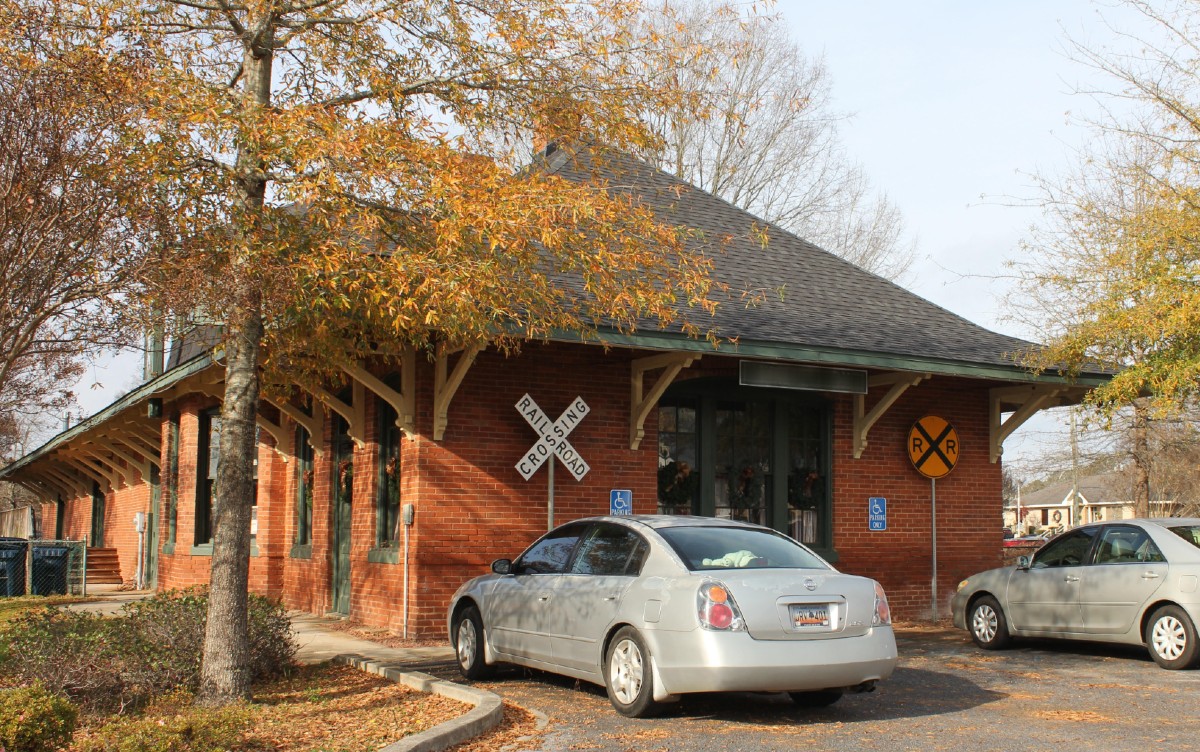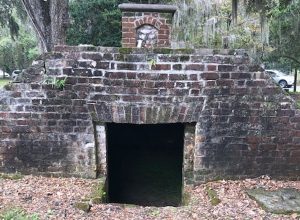INSIDE ISSUE 19.01 | Jan. 3, 2020
 BIG STORY: Effort to ban abortion could heat up early in 2020
BIG STORY: Effort to ban abortion could heat up early in 2020
NEWS BRIEFS: Screening set for 4 PSC seats, education formula review, more
COMMENTARY, Brack: 2010s: The Decade of the NIbble
SPOTLIGHT: Riley Institute at Furman University
FEEDBACK: State working at cross purposes on roads
MYSTERY PHOTO: Mystery building
S.C. ENCYCLOPEDIA: Chicken bog
Effort to ban abortion could heat up early in 2020

By Lindsay Street, Statehouse correspondent | The state Senate is readying for a second showdown in two years over a bill seeking to restrict access to abortions in South Carolina. And while this new bill is different and under different circumstances, some on both sides of the hot-button issue are still looking to 2018 for lessons.
Last year, the House passed H. 3020, known as the Fetal Heartbeat Protection Act. The bill seeks to ban abortion in most cases after a fetal heartbeat is detected, which usually occurs about six weeks gestation. During the off-session, the Senate Medical Affairs Committee and its subcommittee met on the issue. After removing exceptions for rape and incest, it passed the committee, and is now ready for the Senate floor and could be among the first items taken up with the session reconvenes Jan. 14.
If the ban passes the Senate, Gov. Henry McMaster has vowed to sign the bill, having a huge impact on South Carolinians. In 2018, 4,646 abortions were reported to S.C. Department of Health and Environmental Control (DHEC). Of those, 55.8 percent — 2,596 — were performed after 7 weeks gestation.
- South Carolina is part of a trend of red states passing stricter abortion laws. Georgia’s similar restrictions, passed in 2019, has been temporarily blocked by a federal judge.
For Republicans, there is math to work out: 26 of the Senate’s 27 Republicans will need to vote in lockstep to advance H. 3020 onto the calendar for debate, and they will need that same majority to prevent a filibuster, according to House Majority Leader Shane Massey of Edgefield.

“I would love to push it but we don’t have the votes and, after talking with other Republican senators, I’m even more convinced now we don’t have the votes than we did before (in 2018),” Massey said. “This is not where you got some people in the middle who maybe could be persuaded by debate. This is an issue where people know where they are and they know where they are going to be.”
Meanwhile, Democrats are prepared for a drawn-out battle in an election year.
Lobbyists on both sides are encouraging constituents to reach out to their senators and voice their opinions.
“The most important thing really is for constituents, for the public, to speak up about the bill. The legislators have gotten accustomed to debating abortion bans, different types year after year, and I think in some ways have gotten numb to it and just sort of expect to have to battle these bans every year,” S.C. Women’s Rights and Empowerment Network CEO Ann Warner said. “It should be mobilizing for people across the state.”
A look at 2018
Senate Democrats were able to defeat a bill in 2018 that sought to curb a procedure for fewer than three in 1,000 abortions that occur in the state.
The bill, H. 3548, called for a ban of “dismemberment” abortions, which is an anti-abortion term for the medical procedure known as “dilation and evacuation.” According to DHECl, 13 of the 4,646 abortions reported in 2018 were classified as “dialtion and evacuation.”

After passing the House, the narrow bill hit the Senate floor with days left in the session, where Orangeburg Democratic Sen. Brad Hutto amended the bill to include almost all abortions — turning the bill into one of the most expansive in the nation. It was a dare he issued to Republicans:
“Every year in multiple forums, some form of abortion debate comes to the Senate and ties us up in knots,” Hutto said this past May. “This will remove the incentive to argue this over and over and over again because (if passed it would be) in the courts for the next three years.”
The Senate Democrats also launched a concerted filibuster.
Senators had to choose whether to continue debate and not pass waiting bills, or recommit the abortion restriction to committee. With the bill made “more aggressive” and the clock clicking down, it lost the votes needed to prevent filibustering and keep it from being recommitted to committee.

“The calendar was on our side,” Charleston Democratic Sen. Marlon Kimpson said. He was among the Democrats who filibustered the bill in 2018. “Because of (Hutto’s amendment and the end of session), we were able to appeal to the moderate Republicans since the bill was now so extreme and we had other pressing matters on the calendar.”
But 2020 debate will be different
In addition to being a more expansive bill, the 2020 debate poses two big differences: it’s an election year with Republicans facing possible primary challenges in March. And, if the Senate gets an early start on the issue, there are four months of session to continue the abortion debate.
“As soon as you figure out what works, the equation always changes,” Walterboro Democratic Sen. Margie Bright Matthews said. “It’s like a chess game, the parts keep moving.”
She said Democrats found success in being a “united front” in 2018, and she expected the same to happen in 2020.

But they may not be able to count on moderate Republicans this time — and that’s the hope of Holly Gatling, executive director for S.C. Citizens for Life, which opposes abortion procedures.
- Ahead of the Jan. 14 start of legislative session, S.C. Citizens for Life will hold its annual Proudly Pro-Life Weekend Jan. 10-11 in Columbia. Info here.
“It’s an election year” Gatling said, declining to elaborate further.
Warner said her organization, which opposes further restrictions on abortion procedures, is worried that could sway moderates in favor of an “extreme” ban.
“Unfortunately, there are too many people who want to play politics with people’s lives. This issue is being exploited for political gain,” Warner said.
Kimpson said that if restricting abortion is “truly a Republican priority, they have the numbers to get it done.”
But even so, Massey said he’s not sure Republicans will have the numbers to bring the bill to the floor, let alone defeat a filibuster.
“The lesson from 2018 is that you don’t have the votes for this one,” Massey said, adding that there is one less Republican in the Senate now, after Richland Democratic Sen. Dick Harpootlian took the seat in a special election later in 2018.
While the debate so far between Democrats and Republicans has been whether the bill is too extreme, at least one Republican senator said the bill does not go far enough. Anderson Sen. Richard Cash has pushed for full “personhood” of embryos and fetuses in the past (S. 485 this session, which has stalled like previous efforts). He said he plans to make amendments on the floor to 3020.
“I’ve tried to make the case for every human being having a right to life,” he said. “I’ll continue to bolster that and make those arguments as strongly as I can.”
- Have a comment? Send to: feedback@statehousereport.com
Screening set for 4 PSC seats, education formula review, more

By Lindsay Street, Statehouse correspondent | Candidates for four of the state’s utility regulator commission’s seven seats will be screened and voted on beginning Jan. 7 and ending Jan. 9.
The S.C. Public Service Commission administers state law and regulates policy regarding utilities. The State Regulation of Public Utilities Review Committee, a panel of legislators and citizens, screens commissioners.
The seats align with congressional districts in the state. Candidates being screened are for Seat 1 (currently held by John E. Howard), Seat 3 (currently held by commission Chairman Comer H. Randall), Seat 5 (currently held by Swain E. Whitfield), and Seat 7 (currently held by G. O’Neal Hamilton).
Neither Howard nor Hamilton appear on the schedule for screening. See the agenda here.
- Previous coverage: Big changes could be coming to PSC in 2020.
- Previous coverage: Lawmakers irked by PSC’s solar decision.
- Related: PSC mulls ban on utilities selling customer data. Read more.
![]() In other S.C. news:
In other S.C. news:
Ed funding formula reviewed. A Senate Education Committee subcommittee will meet 1 p.m. Jan. 8 in room 308 of the Gressette building on the Statehouse grounds in Columbia to review the mechanics and methodology of the state’s education funding formula. The panel is tasked with determining revisions necessary to meet state objectives for public education. See agenda.
It’s hot, getting hotter. An analysis by The Post and Courier found that seven of the hottest years on record for Charleston occurred in the last 10 years. And weather forecasters say that trend will continue. (Think of what it means in Columbia, which may be the hottest city in the state, for various reasons.) Read more.
Fees rising at state parks . State park admissions are increasing around the state in 2020. All 47 state parks will see changes, according to service staff. Park admissions will be going up by a few dollars per person with $3 per adult being the highest increase. The annual pass options have changed, but the highest level costs the same at $99. Read more.
2020 candidate calendar
 Throughout the campaign season, we are working to keep South Carolina informed of candidate events in the state. Have an event you want us to know about? Email us at 2020news@statehousereport.com.
Throughout the campaign season, we are working to keep South Carolina informed of candidate events in the state. Have an event you want us to know about? Email us at 2020news@statehousereport.com.
Booker makes stops in Rock Hill, Walterboro. U.S. Sen. Cory Booker of New Jersey is making a two-day swing through the state. He will speak 8-9:30 p.m. Jan. 3 at Rock Grove African Methodist Episcopal Zion Church in Rock Hill, and speak at a town hall with state Sen. Margie Bright-Matthews of Colleton County 10:30 a.m.-noon Jan. 4 at Colleton Civic Center in Walterboro.
Debate to be held in Charleston. Democratic candidates will convene in Charleston on Feb. 25 for a nationally-televised debate that is four days before the state’s primary. No word yet on tickets, but we’re told that the national party will be in charge.
- Have a comment? Send to: feedback@statehousereport.com
2010s: The legislature’s Decade of the Nibble

By Andy Brack, editor and publisher | Looking back at the past decade, it’s pretty easy to see what the S.C. General Assembly didn’t do — fix education, fix the tax structure, fix health care and on and on.
 But state lawmakers did get some things done in what may become known as the legislature’s Decade of the Nibble. That’s because each area they focused on was more of what a posh restaurant would call an “amuse bouche” than an entree.
But state lawmakers did get some things done in what may become known as the legislature’s Decade of the Nibble. That’s because each area they focused on was more of what a posh restaurant would call an “amuse bouche” than an entree.
During the Nibble Decade, lawmakers passed tax cuts, boosted funding to fix cruddy roads, protected land and shored up a failing pension system for state employees that needs more work still. They eventually also raised the pay of teachers and state employees and took baby steps to encourage the solar industry and limit opioid abuse.
And they argued. Goodness, how they argued about voting rights, guns, abortion, broadening health care for the poor, dark money in politics and ethics reform — even as scandal brought down a House speaker and snared other insiders.
Here’s a look at some impacts of the late tween and teen years of the 2000s for the General Assembly:
Tax cuts. The impact of a pre-recession income tax cut for small corporations took more than $1.6 billion of potential revenue out of state coffers in the 2010s. The cut, which reduced rates from 7 percent in 2006 to 3 percent by 2014, created a revenue loss of almost $300 million a year by 2018. In a state with massive education and health funding needs, taking that much money out of the state’s revenue stream was destabilizing, particularly for whenever the next recession hits.
Road improvements. After years of bickering, the General Assembly finally started to pay attention to the state’s aging roads. In 2013, lawmakers passed $50 million a year for big bridge and road improvement projects. Then in 2017 after the public screamed for better roads, they raised the gas tax for the first time in three decades. The boost, phased in by two pennies a year for six years in a row, is expected to bring in $622 million a year for improved roads by 2023. The tax hike, however, became politically palatable with more tax cuts totalling $207 million a year, further reducing the state’s tax base.
Conservation Bank. Lawmakers also reauthorized the S.C. Conservation Bank, which has protected 300,000 acres of land since 2002. The bank’s dedicated revenue was taken away, but its structure essentially was set up as a state agency, which conservationists lauded as a step forward.
Guns. Lawmakers expanded gun rights — in some schools, bars and other places — rather than approving more extensive background checks and closing loopholes. Debates over guns continue to cause legislators to butt heads.
Voting changes. Many freedom advocates found the Republican Party’s obsession over requiring identification cards at the polls to be little more than a modern-day poll tax to suppress voting.
Pension reform. The state’s pension system for employees has been in a multi-billion-dollar underfunded hole for years, but in 2017, lawmakers started to shore it up. They lowered fees for investment, increased the state’s contribution and set new investment guidelines. There’s more work to be done, but this steered the state in a new direction to fixing the system over the long term.
Ethics reforms. State legislators also made some headway in bolstering government transparency in 2016 when they reconstituted an independent state Ethics Commission with broader powers. They also required public officials across the state and their immediate family members to disclose public and private sources of income. Lawmakers didn’t, however, rein in dark money creeping into the political process that is influencing elections in sinister ways.
All in all, the General Assembly deserves a “C” for its generally average work during the Decade of Nibbling Around the Edges. It made some progress on second-tier issues, but didn’t tackle the much-needed improvements on education, poverty and health care that can really impact people’s lives.
For the next decade, big progress will be hard, particularly because the General Assembly is a harsher, less collegial place thanks to the nastiness creeping into state politics from extreme partisanship in Washington.
Andy Brack is editor and publisher of Statehouse Report. Have a comment? Send to: feedback@statehousereport.com.
Riley Institute at Furman University
 The public spiritedness of our underwriters allows us to bring Statehouse Report to you at no cost. This week’s spotlighted underwriter is Furman University’s Riley Institute, which broadens student and community perspectives about issues critical to South Carolina’s progress. It builds and engages present and future leaders, creates and shares data-supported information about the state’s core challenges, and links the leadership body to sustainable solutions.
The public spiritedness of our underwriters allows us to bring Statehouse Report to you at no cost. This week’s spotlighted underwriter is Furman University’s Riley Institute, which broadens student and community perspectives about issues critical to South Carolina’s progress. It builds and engages present and future leaders, creates and shares data-supported information about the state’s core challenges, and links the leadership body to sustainable solutions.
Launched in 1999, the Institute is named for former South Carolina Governor and former United States Secretary of Education Richard W. (Dick) Riley. It is committed to nonpartisanship in all it does and to a rhetoric-free, facts-based approach to change.
- Learn more about the Riley Institute.
- Also learn more about the Riley Institute’s Center for Education Policy and Leadership.
State working at cross purposes on roads
To the editor:
![]() I continue to enjoy Andy Brack’s column in the Index-Journal on Sundays. This Sunday’s column was particularly good. However, when it comes to the environment and roads, South Carolina is working at cross purposes. When the gas tax bill was passed, it included a surcharge of $60 on hybrid cars and $120 on electric cars biannually.
I continue to enjoy Andy Brack’s column in the Index-Journal on Sundays. This Sunday’s column was particularly good. However, when it comes to the environment and roads, South Carolina is working at cross purposes. When the gas tax bill was passed, it included a surcharge of $60 on hybrid cars and $120 on electric cars biannually.
In my view this penalizes those of us who are interested in helping the environment. According to state Sen. Shane Massey, this is so that everyone pays their fair share to use the roads. Why is the gas tax the only way to fix the roads? It won’t be too long before gasoline powered vehicles will be things of the past.
It is time for the General Assembly to find another source of revenue if the roads are really going to be improved. I would love to see Andy Brack address this in a future column or contact me directly.
— Jerry Goldman, McCormick, S.C.
Tell us what you think — sound off!
We love hearing from our readers and encourage you to share your opinions. But you’ve got to provide us with contact information so we can verify your letters. Letters to the editor are published weekly. We reserve the right to edit for length and clarity. Comments are limited to 250 words or less. Please include your name and contact information.
- Send your letters or comments to: feedback@statehousereport.com
Mystery building

The image above is in South Carolina and may — or may not — have been a depot. Send your best guess to feedback@statehousereport.com. And don’t forget to include your name and the town in which you live.
Our previous Mystery Photo
 Our Dec. 27 image, “This may be a very tough mystery” wasn’t, as it happens, as difficult as we thought. Five alert readers figured out that the photo showed an old-timey receiving tomb, which happened to be at Strawberry Chapel in Berkeley County.
Our Dec. 27 image, “This may be a very tough mystery” wasn’t, as it happens, as difficult as we thought. Five alert readers figured out that the photo showed an old-timey receiving tomb, which happened to be at Strawberry Chapel in Berkeley County.
Congratulations to those who knew it what it was: Bill Segars of Hartsville; Carolyn Jones of Columbia; Philip Cromer of Beaufort; George Graf of Palmyra, Va.; and Susan Igel of North Charleston.
Cromer said he knew about the vault thanks to an October tour of the chapel by the S.C. Historical Society. It was the Harleston Family Vault “located in front of the Strawberry Chapel on the upper reaches of the Cooper River in Berkeley County on the former site of the colonial town of Childsbury. The vault was a receiving tomb for the chapel where bodies were stored while plots were being prepared for burial. The interior of the vault has a domed ceiling of brick and a dirt floor. It is partially underground which provided a cool environment to preserve the remains of the deceased.
Segars added, “In the cold Northern climates, frozen ground posed a problem in digging graves. In the South, bodies were typically stored here waiting for family members to travel for the funeral service. Strawberry Chapel, a chapel of ease to St. John’s Parish, was built in the colonial town of Childbury in 1725. The date of this receiving vault is unknown, at least to me.”
Graff noted that “Childsbury was one of the first towns to be laid out by Englishmen arriving in the Carolina colony. It was named after founder James Child, who established a Cooper River ferry and helped design the settlement. Strawberry Ferry operated near the chapel, at the bottom of the bluff and about 100 yards from the modern dock there today on the Cooper River. It went across the river to Bluff Plantation, near Cypress Gardens, where a road would take travelers to the Broad Path (modern-day Highway 52), providing a direct route into Charleston.
“Farmers from Childsbury had a hard time competing with the prosperity of other Lowcountry plantations, and the town did not last. Eventually the settlement’s buildings were absorbed into nearby Strawberry Plantation (from whence the chapel gets its unusual name).”
Thanks all for the great history lesson.
- Send us a mystery: If you have a photo that you believe will stump readers, send it along (but make sure to tell us what it is because it may stump us too!) Send to: feedback@statehousereport.com and mark it as a photo submission. Thanks.
S.C. ENCYCLOPEDIA
Chicken bog

S.C. Encyclopedia | While anecdotal evidence exists that the name chicken bog was related to the “boggy” nature of its home, the Pee Dee, the southern writer James Villas states in his book Stews, Bogs and Burgoos that a “bog (unlike a pilau) is any stew that includes wet, soggy rice.”
In her benchmark work, The Carolina Rice Kitchen, Karen Hess is more specific, describing chicken bog as a pilau made in large batches, which would always cause it to end up wet. The culinary historian Damon Lee Fowler defines chicken bog as “a highly localized form of pilau, probably of African provenance, in the U.S. found only in South Carolina.” From research in the Pee Dee region for his documentary film Southern Stews: A Taste of the South, Stan Woodward concluded that “while fondly cherished as the native stew of the Pee Dee . . . the name chicken bog was never well documented by its users . . . because it was a commonplace high protein meal that fed a lot of people in a poor environment.”
Traditionally, the only ingredients are chicken, rice, sausage, and onions, seasoned with salt and plenty of black pepper. The best chicken to use is an older hen, past good egg production, free-range and full of flavor; the second choice is a fat rooster. The chicken is poached, and then its meat is pulled off the bone, not chopped. The fat is removed from the broth, and then the rice, chicken, sausage, and onions all simmer gently together in the broth until the rice is “done.”
Whether chicken bog is eaten with a fork or a spoon depends on the cook. Even for a respected Pee Dee “bogmaster,” says Woodward, cooking bog in fifty-gallon wash pots is an art. It is “good bog if the rice is plump and moist, holds on to one another real good and sits up above a little gravy in the bottom of the pot and don’t cling to the chicken.”
Chicken bog is the main attraction at the annual Democratic stump meeting at Galivants Ferry, near the Little Pee Dee River. Traditional accompaniments are snap beans, white rolls, and Pepsi. The same combination is served in Loris, a small town north of Myrtle Beach. Loris residents decided in 1979 to make chicken bog the theme for an annual festival in October, which centers around the “Bog-Off,” a cooking competition for the best chicken bog. In 2001, attendance at the festival numbered approximately twenty thousand.
– Excerpted from the entry by Marion B. Sullivan. This entry may not have been updated since 2006. To read more about this or 2,000 other entries about South Carolina, check out The South Carolina Encyclopedia by USC Press. (Information used by permission.)
ABOUT STATEHOUSE REPORT
Statehouse Report, founded in 2001 as a weekly legislative forecast that informs readers about what is going to happen in South Carolina politics and policy, is provided to you at no charge every Friday.
Meet our team
- Editor and publisher: Andy Brack, 843.670.3996
- Statehouse correspondent: Lindsay Street
 Buy the book
Buy the book
Now you can get a copy of editor and publisher Andy Brack’s We Can Do Better, South Carolina! ($14.99) as a paperback or as a Kindle book ($7.99). . The book of essays offers incisive commentaries by editor and publisher Andy Brack on the American South, the common good, vexing problems for the Palmetto State and interesting South Carolina leaders.
More
-
- Mailing address: Send inquiries by mail to: 1316 Rutledge Ave., Charleston, SC 29403
- Subscriptions are free: Click to subscribe.
- We hope you’ll keep receiving the great news and information from Statehouse Report, but if you need to unsubscribe, go to the bottom of the weekly email issue and follow the instructions.
- © 2020, Statehouse Report, a publication of City Paper Publishing, LLC. All rights reserved.
- Read our sister publications: Charleston City Paper (every Wednesday) | Charleston Currents (every Monday)
















